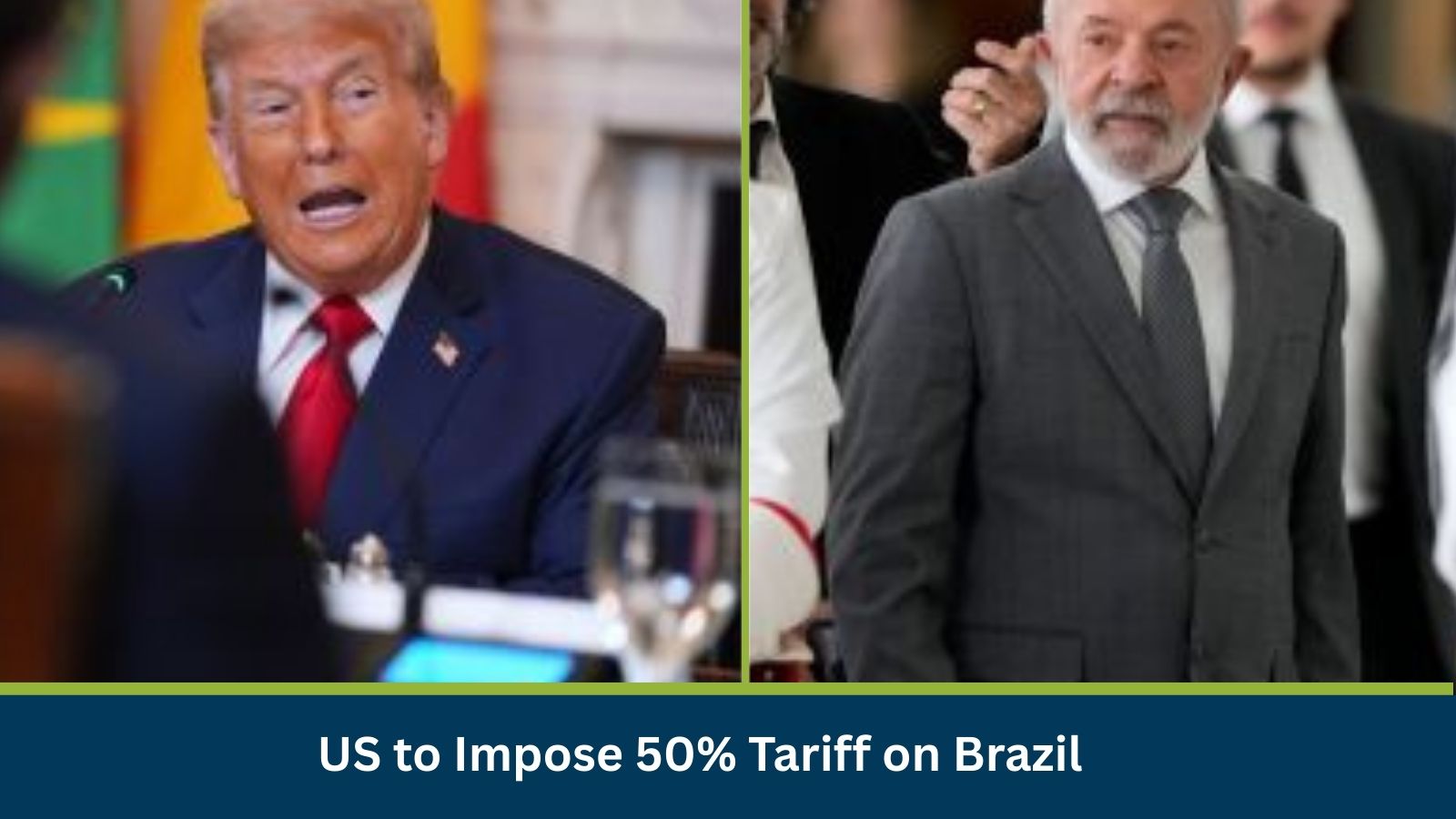US President Donald Trump has announced a 50% tariff on Brazilian exports to the United States. In a letter to President Luiz Inácio Lula da Silva, he linked the move to the ongoing trial of former President Jair Bolsonaro, calling it a “disgrace” and a “witch hunt.” Trump also accused Brazil of taking actions against US tech companies.
President Lula responded by reaffirming Brazil’s judicial independence, stating, “Brazil will not accept any form of tutelage.” He also indicated that Brazil may consider retaliatory tariffs if the US measure is implemented.
The bilateral trade between the two countries stood at $104 billion, making Brazil the US’s 15th largest trading partner. Brazil exports majorly consists of crude oil and fossil fuels, iron and steel products and soya beans. While US exports aircraft and spacecraft, fossil fuels and industrial machinery.
The tariff could reduce Brazil’s GDP by 0.3–0.4%, while potentially raising input costs for US manufacturers and consumers that rely on Brazilian imports.
The announcement coincided with the BRICS 2025 summit in Rio de Janeiro, where Brazil hosted leaders from China, Russia, Iran, and others. The summit critiqued the unilateral imposition of heavy tariffs. In response, Trump threatened an additional 10% tariff on countries he described as “anti-American.”
While Trump has frequently pointed to trade imbalances as justification for such tariffs, the US actually posted a $7.4 billion trade surplus with Brazil in 2024. This has led analysts to view the measure as politically motivated, rather than driven by economic factors.
Many experts interpret the Brazil tariff as part of a broader trend, where trade tools are increasingly used to signal political discontent or apply diplomatic pressure.
Are we entering an era where economic policy is shaped more by geopolitics than trade fundamentals?
Comment Below.
MitKat’s GenAI platform datasurfr continuously monitors events, threats and risks. Real-time risk alerts enable proactive response by first responders and security teams. PREDICT – the pioneering AIAgent of datasurfr has the ability to carry out limited reasoning and automatically generate the “context” for real-time events. it also helps predict how will an event unfold and what would be its probable impact with industry and location-specific probabilistic scores.
𝐃𝐢𝐬𝐜𝐥𝐚𝐢𝐦𝐞𝐫: This post has reference to open sources including Bloomberg, New York Times, BBC and Al Jazeera.






